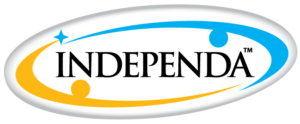Thanks to advancements in medicine and telecare, people are living longer than ever before, but it’s easy to assume this means more years spent with restrictive physical and cognitive issues. However, back in August, we reported on a study that bears promising news for older adults across the country – and the professionals who serve them. Despite concerns about dementia, heart disease and other debilitating conditions, Americans are actually enjoying better health as they age.
Upon reviewing data from a Medicare Current Beneficiary Survey, Harvard professor David Cutler and his colleagues noted that many respondents did not report substantial medical issues or restrictions until relatively late in their lives, and that “the period of time in which we’re in poor health is being compressed,” a press release stated.
Now, another contributor to this incredible effort to better understand the factors behind our life expectancy has shed further light on this research. University of Massachusetts Medical School (UMMS) associate professor Dr. Allison Rosen expanded on the details of “quality-adjusted life expectancy” (QALE) and how it has transformed over the years.
“QALE tells us more than how long a person can expect to live,” Dr. Rosen explained in a recent interview posted on the UMMS website. “It tells us what the relative quality of those added years are in terms of physical, emotional and mental well-being.”
Dr. Rosen also explained that this research, which has just been published in the American Journal of Public Health this month, shows how existing medical data can be used to glean overarching trends in health and well-being – a capability that can impact many industries, including eldercare.
Better understanding the challenges that older adults face at certain stages, and implementing measures to maintain the level of care, can benefit care managers and their recipients across the country. Independa’s innovative caregiver support technology is designed to improve quality of life for older adults while its remote monitoring capabilities help caregivers identify small problems before they become big problems. Contact us today through our online form to learn more.
